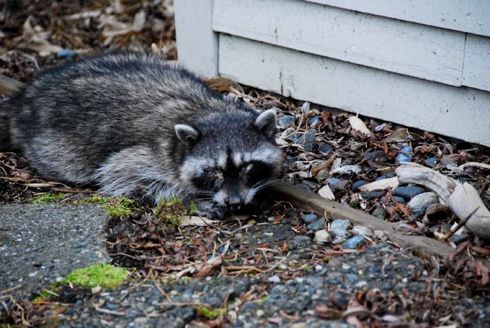Raccoons are small furry creatures similar to squirrels that you may see around your house. Like any other warm blooded animal, they can contract rabies and even transmit it through their saliva. Along with skunks, bats and foxes, they are considered a primary carrier of rabies and it is important to be careful around them. Raccoons get infected with rabies when bitten hard enough by another infected animal. So how can I tell if raccoons have rabies? The most obvious sign is when you sight raccoons during the day. They are nocturnal animals and forage at night then sleep during the day. If they appear during the day, it means something is amiss. However, this may not always be the case as it may be a mother raccoon looking to feed her young. If you scare the raccoon, it should scurry away. Another sign of the rabies virus in a raccoon is loss of the fear of humans. Any discharge from the eyes, nose and mouth such as mucus or foaming is another vital sign to look out for.
Increased salivation is also a potent sign; these are caused by paralysis in the throat and are the hallmark signs of rabies in any animal. Any signs of aggression to other animal or humans is also a crucial symptom to be alert for. Infected raccoons in some cases also tend to self mutilate. It may also attack inanimate objects. Since rabies affects the nervous system, the raccoon may appear disoriented, wander aimlessly and have one or more paralyzed limbs. The lower jaw of a raccoon may also appear paralyzed. Look out for staggering, difficulty in movement or very slow motion. A raccoon infected with the rabies virus will seem oblivious to movement or sounds near it. They may also chatter unusually and make shrill high pitched noises repeatedly.
If you are experiencing problems with raccoon you should call for professional raccoon removal.

